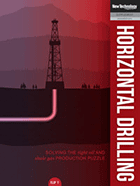US Department Of Energy, Shell Canada Collaborate On CO2 Storage Project
- Category: Production & Completions
- Published: 2015-Feb-04
WASHINGTON, D.C. -- The U.S. Department of Energy (DOE) and Shell Canada announced today they intend to collaborate in field tests to validate advanced monitoring, verification and accounting (MVA) technologies for underground storage of carbon dioxide (CO2). The tests will take place at Shell’s Quest Carbon Capture and Storage (CCS) project in Alberta.
The Shell Quest team and technology developers funded by the DOE and managed by DOE’s National Technology Laboratory (NETL), have been discussing opportunities to field test and validate advanced MVA technologies at the Quest CO2 underground storage site.
The Quest project is significantly funded by the Government of Canada and the Province of Alberta. The Department of Energy is leveraging a federal investment of approximately $3 million in existing and ongoing projects in their research and development program by proposing roughly $500,000 for this collaborative effort to field test advanced MVA technologies.
These advanced MVA technologies have the potential to provide highly reliable, robust and lower cost monitoring technologies to CCS projects in the U.S. and throughout the world. Details of the collaboration are expected to be finalized in early 2015.
MVA technologies are critical throughout the lifecycle of large-scale CCS projects such as Quest. They are needed to understand and track CO2 movement in the storage formation and to monitor and ensure safe, permanent CO2 injection and storage in geological formations.
The technologies under consideration would be tested alongside the state-of-the-art, comprehensive monitoring program Shell has already put in place for the project. The results from the tests are expected to provide additional information that would benefit future large-scale CCS projects around the world.
The United States and Canada are two of the world’s leaders in the research, development and demonstration (RD&D) CCS technologies. Both countries recognize the importance of CCS to address climate change concerns and the role it can play in enabling reliable, cost-efficient sustainable deployment of fossil energy to meet the world’s growing energy demand.
While much progress has been made on CCS technology development over the past decade, there are still relatively few large-scale injection projects into saline formations to help validate advanced technologies and address key technical challenges. The Quest project will reduce CO2 emissions from Shell’s Scotford Upgrader by more than one million tonnes per year by capturing the CO2 and injecting it more than one mile underground.
The Shell Quest project and the Archer Daniels Midland (ADM) CCS demonstration project in Decatur, Illinois, managed by NETL, are expected to begin injecting CO2 in 2015. Each project will capture and store approximately one million tonnes of CO2 per year in saline formations.






 Daily News Archive
Daily News Archive 

